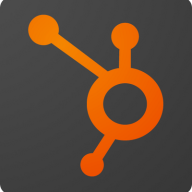

Oracle CRM and HubSpot CRM are two leading competitors in the CRM sector. Oracle CRM seems to have an edge in terms of comprehensive features and integration capabilities, while HubSpot CRM is noted for its affordability and simplicity, making it appealing for smaller businesses.
Features: Oracle CRM boasts an extensive suite including integration with Oracle E-Business Suite, comprehensive analytics tools, and a robust loyalty program, catering to industries such as banking and retail. HubSpot CRM is characterized by its marketing suite, seamless email platform integration, and sales automation conducive to tracking leads.
Room for Improvement: Oracle CRM could enhance its usability, cloud integration, and support speed, with calls for a more intuitive interface and improved third-party integration. HubSpot CRM might improve by offering more customization, better bulk record management, and clearer pricing for advanced features as users notice limitations in customization at certain subscription levels.
Ease of Deployment and Customer Service: Oracle CRM offers varied deployment options, such as hybrid and on-premises, though some users mention slow resolution times despite good technical support. HubSpot CRM is mainly a public cloud solution praised for its easy setup, although some users feel the feature range could improve at higher pricing tiers.
Pricing and ROI: Oracle CRM is generally seen as costly, particularly for its on-premises version, focusing on large companies. Pricing reflects its comprehensive offerings and integration capabilities. HubSpot CRM is seen as more cost-effective, appealing to small and medium-sized businesses with its free version, though costs can increase with added features or user bases. Both show notable returns on investment through improved operational efficiencies despite different initial expenses.
Part of it is different language use, and while that's okay, it wasn't immediately evident where to find help, verify, or submit a question and get responses.
HubSpot's customer service is excellent and fast.
There is always an account rep that's available, and there is a technical account rep that is available for every account.
HubSpot CRM is a scalable solution.
Handling around 100 to 150 users is fine.
There are a lot of enterprises using it, however, even as a GTM for HubSpot, their target market is predominantly SMB.
We haven't really had any technical challenges with Oracle CRM.
Regarding the stability of Oracle CRM, nobody is facing any major issues in terms of infrastructure problems whether it is Oracle CRM, Salesforce, or SAP CRM; they are all the same, especially with cloud-based SaaS.
HubSpot should establish some pre-deployable packages that, when contracted, offer basic functionality.
The response time is slow.
Their per-user pricing is on the higher side, and most of their enterprise contracts require a minimum one-year guarantee for any enterprise agreement.
When a client asks for any support, they're often in real trouble and need a prompt response.
It's already integrated into our environment, so moving to something else will require a massive investment and change in strategy that we as an organization are not prepared to embark on just yet.
The AI feature needs improvement.
HubSpot stands out for its ease of use, especially with sequence creation compared to other CRM solutions.
The feature that I find valuable is the customer 360-degree view and the marketing automation.
All the automation features, where I can completely automate a cadence like emailing, lead scoring, and lead qualification, everything can be automated, including all workflows.
The biggest advantage of Oracle CRM for me is the process coverage, ease of use, the UI, and obviously a good amount of analytics; these are the few strengths and seamless integration with any platform.
The solution serves end-to-end customer relationship management which includes sales cloud, e-commerce cloud, and marketing cloud.
Currently it's meeting all our needs, hence the migration about six months ago that we moved from on-premise to OCI, to the cloud-based platform to add additional capacity and analytics.
| Product | Market Share (%) |
|---|---|
| HubSpot CRM | 1.1% |
| Oracle CRM | 1.0% |
| Other | 97.9% |

| Company Size | Count |
|---|---|
| Small Business | 39 |
| Midsize Enterprise | 5 |
| Large Enterprise | 8 |
| Company Size | Count |
|---|---|
| Small Business | 17 |
| Midsize Enterprise | 2 |
| Large Enterprise | 22 |
HubSpot CRM is a comprehensive customer relationship management software that helps businesses manage their sales, marketing, and customer service activities. It offers a wide range of features, including contact management, email tracking, deal tracking, and task management.
With its intuitive interface and easy-to-use tools, HubSpot CRM allows users to streamline their sales processes, track customer interactions, and improve overall productivity. It also integrates seamlessly with other HubSpot products, such as marketing automation and customer service, providing a complete solution for businesses of all sizes.
Whether you're a small startup or a large enterprise, HubSpot CRM can help you organize and grow your customer relationships.
On demand CRM with contextual intelligence, adaptive business planning, and analytics. Supports cloud integration with Outlook and mobile devices, as well as sales and marketing applications. Multi-tenancy or single-tenancy options available.
We monitor all CRM reviews to prevent fraudulent reviews and keep review quality high. We do not post reviews by company employees or direct competitors. We validate each review for authenticity via cross-reference with LinkedIn, and personal follow-up with the reviewer when necessary.